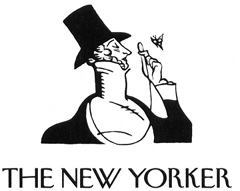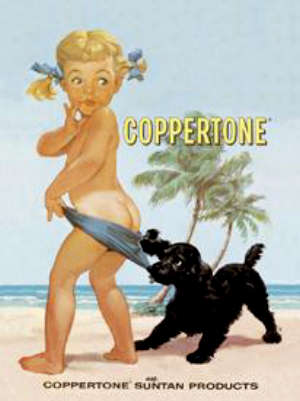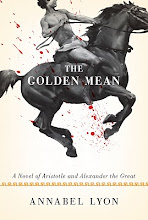Wednesday, December 22, 2010
Tuesday, November 23, 2010
New Yorker Review
A “vivid imagining of the encounter between Aristotle and the young Alexander the Great…. Lyon’s evocation of the ancient world is earthy and immediate.”
If you have a New Yorker subscription, you can see the complete review online by clicking here. Otherwise, you can read the review in the November 29rd issue.
If you have a New Yorker subscription, you can see the complete review online by clicking here. Otherwise, you can read the review in the November 29rd issue.
Friday, November 19, 2010
Books of the Year for Christmas
"Annabel Lyon won prizes in her native Canada for her note-perfect historical novel The Golden Mean (Atlantic, £14.99), but here [in the UK] it has not had the attention it deserves. It tells the story of Aristotle and the young Alexander; her interpretation of their relationship and their world is luminous and deeply intelligent." --Hilary Mantel
To read the full article in The Telegraph, with more gift suggestions from Mantel, Colm Toibin, Simon Schama, Lydia Davis and others, please click here.
Thursday, November 18, 2010
Bad Sex Shortlist!
I am deeply honoured to announce that The Golden Mean has made the shortlist for the Literary Review's Bad Sex in Fiction Award for 2010. The competition includes Jonathan Franzen and Christos Tsiolkas, amongst others. To read the whole sweaty, red-faced list, please click here.
Wednesday, November 17, 2010
Fabulous Fiction: Sitka Books and Art
On Wednesday, November 24 at 7:30PM, I'm honoured to be reading from The Golden Mean alongside Lee Kvern (The Matter of Sylvie) and Chris Ewart (Miss Lamp). For more information, please click here.
Monday, November 15, 2010
Thursday, November 4, 2010
Welcome, Brazilian Readers!
The Golden Mean is now available in Brazil from Leya under the title O Filosofo + O Imperador. For more information, please click here.
Wednesday, November 3, 2010
Robson Reading Series II
On Thursday, November 4th at 1:00PM, I'll be reading at the Irving K. Barber Learning Centre, Parliament Room 155, at 1:00PM. The reading is free and open to the public. For more information, please click here.
Saturday, October 30, 2010
Welcome, Portugese Readers!
The Golden Mean is now available in Portugese under the title Aristoteles e Alexandre from D.Quixote. For more information, please click www.dquixote.pt.
BC's Top 100 Influential Women
According to the Vancouver Sun, I'm one of BC's Top 100 Influential Women. Now, if only someone would tell my kids. To read the full article, please click here.
Friday, October 29, 2010
The Daily Beast
"And while The Golden Mean is beautifully written, its compressed prose both fleet and rhythmic, the novel’s pleasures are closer to those of Robert Graves’ I, Claudius, or even the historical pot boilers of Ken Follett."
To read Taylor Antrim's full review for The Daily Beast, please click here.
To read Taylor Antrim's full review for The Daily Beast, please click here.
University College's 2010 Stubbs Lecture
"The talk by the Rogers Trust Writers’ Fiction Prize-winning author was wide-ranging, opening with the Greek myth of Philoctetes, a famed archer, and touching on depression, gender roles and creating a historical character that rings true to one’s readers. Lively and intelligent, her lecture was thought-provoking for both readers and writers."
To read Elaine Smith's full article for News@The University of Toronto, please click here.
To read Elaine Smith's full article for News@The University of Toronto, please click here.
Tuesday, October 12, 2010
Welcome, Spanish Readers!
The Golden Mean is now available in Spain under the title El Maestro de Alejandro. To purchase a copy of the Spanish edition, please click here.
Wednesday, October 6, 2010
Hello, Portland!
On Saturday, October 9th at 2:00PM I'll be in Portland, OR at the Wordstock Festival, on-stage with Tatjana Soli. This event will take place on the Wieden + Kennedy Stage in the Oregon Convention Centre.
Sunday, October 3, 2010
Boston Globe Part Two
"Through Aristotle’s eyes, Lyon presents a remote world in such vivid and intimate detail that this alien terrain becomes uncannily familiar."
To read my interview with the Boston Globe's Anna Mundow, please click here.
To read my interview with the Boston Globe's Anna Mundow, please click here.
Thursday, September 30, 2010
The Golden Mean in Los Angeles
To hear my interview with Kari Moran for KFWB Los Angeles on Sunday, October 3rd at 3:00PM Pacific time, please click here and then click Listen Live.
Love Those Libraries
On Monday, October 4 at 7:00PM, I'll be reading at the Central Branch of the Vancouver Public Library, in the Alma VanDusen Room. Then on Tuesday, October 5 at 7:00PM, I'll be reading at the Richmond Public Library at the Brighouse Performance Hall. Both events are free and open to the public.
The Guardian Top 10
"Annabel Lyon's top 10 books on the ancient world: From Plato to John Updike and Robert Graves to Sappho, the novelist chooses books that 'subvert, surprise, challenge and please'."
To read my full list for The Guardian, please click here.
To read my full list for The Guardian, please click here.
Tuesday, September 28, 2010
Hello Bellingham!
 On Wednesday, September 29 at 7:00PM I'll be reading at Village Books in Bellingham, Washington. For more information, please click here.
On Wednesday, September 29 at 7:00PM I'll be reading at Village Books in Bellingham, Washington. For more information, please click here.
Sunday, September 26, 2010
Hello Seattle!
 On Tuesday, September 28 at 7:00PM, I'll be reading at Seattle's Elliott Bay Book Company. For more information, please click here.
On Tuesday, September 28 at 7:00PM, I'll be reading at Seattle's Elliott Bay Book Company. For more information, please click here.
Boston Globe Review
 "[H]ere we have a novel that is brave enough to raise the universal questions about how a man should live his life; that describes with amazing authority the flaws and growth of one of our greatest philosophers as well as his famous student, who, literally, seems to “swallow the world” before his death at age 32; and that, with luck, may send some of us back to the original texts that still shine with so much intelligence and wisdom."
"[H]ere we have a novel that is brave enough to raise the universal questions about how a man should live his life; that describes with amazing authority the flaws and growth of one of our greatest philosophers as well as his famous student, who, literally, seems to “swallow the world” before his death at age 32; and that, with luck, may send some of us back to the original texts that still shine with so much intelligence and wisdom."To read Roberta Silman's full review for the Boston Globe, please click here.
Saturday, September 25, 2010
Reading at Douglas College
 On Monday, September 27th at 2:00PM, I'll be reading from The Golden Mean at Douglas College, Room 3406, New Westminster campus. This event is free and open to the public. For more information, please click here.
On Monday, September 27th at 2:00PM, I'll be reading from The Golden Mean at Douglas College, Room 3406, New Westminster campus. This event is free and open to the public. For more information, please click here.
Tuesday, September 21, 2010
Monday, September 20, 2010
Rhymes With Aristotle
The opening lines of "The Holy Office", a 1904 poem by James Joyce:
Myself unto myself will give
This name, Katharsis-Purgative.
I, who dishevelled ways forsook
To hold the poets’ grammar-book,
Bringing to tavern and to brothel
The mind of witty Aristotle,
Lest bards in the attempt should err
Must here be my interpreter:
Wherefore receive now from my lip
Peripatetic scholarship....
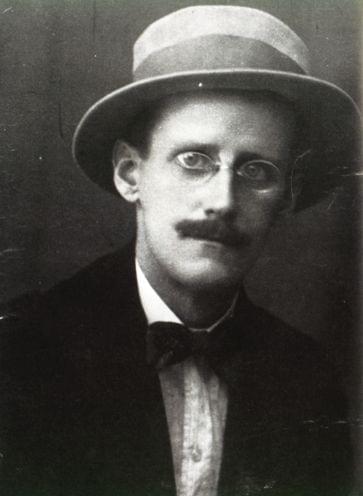
Myself unto myself will give
This name, Katharsis-Purgative.
I, who dishevelled ways forsook
To hold the poets’ grammar-book,
Bringing to tavern and to brothel
The mind of witty Aristotle,
Lest bards in the attempt should err
Must here be my interpreter:
Wherefore receive now from my lip
Peripatetic scholarship....

Sunday, September 19, 2010
Word of the Day
 The Greek term "eudaimonia" is occasionally translated as "happiness", though a more Aristotelian understanding of the term would be "human flourishing", or a complete human life. In Upheavals of Thought: The Intelligence of Emotions, the American scholar Martha Nussbaum points out that in English the word has tended to associate the supreme good with happiness or pleasure, whereas the ancient Greek concept is "compatible with as many distinct conceptions of what that good is as one cares to propose". Further, "A conception of eudaimonia is taken to be inclusive of all to which the agent ascribes intrinsic value: if one can show someone that she has omitted something without which she would not think her life complete, then that is a sufficient argument for the addition of the item in question" (32-33).
The Greek term "eudaimonia" is occasionally translated as "happiness", though a more Aristotelian understanding of the term would be "human flourishing", or a complete human life. In Upheavals of Thought: The Intelligence of Emotions, the American scholar Martha Nussbaum points out that in English the word has tended to associate the supreme good with happiness or pleasure, whereas the ancient Greek concept is "compatible with as many distinct conceptions of what that good is as one cares to propose". Further, "A conception of eudaimonia is taken to be inclusive of all to which the agent ascribes intrinsic value: if one can show someone that she has omitted something without which she would not think her life complete, then that is a sufficient argument for the addition of the item in question" (32-33).According to Wikipedia, "A moral theory which links virtue (arete) and happiness (eudaimonia) specifying the relation between these two concepts is one of the central preoccupations of ancient ethics, and a subject of much disagreement. As a result there are many varieties of eudaimonism. Two of the most influential forms are those of Aristotle[1] and the Stoics. Aristotle takes virtue and its exercise to be the most important constituent in eudaimonia but does acknowledge the importance of external goods such as health, wealth, and beauty. By contrast, the Stoics make virtue necessary and sufficient for eudaimonia and thus deny the necessity of external goods."
This image is of Eros and Eudaimonia.
Saturday, September 18, 2010
Ancient Tombs Discovered Near Pella
 According to Yahoo!, Greek archeologists have uncovered 37 tombs dating back to the iron age near the ancient city of Pella. "The tombs contain iron swords, spears and daggers, plus vases, pottery and jewellery made of gold, silver and iron." This bronze helmet and gold mouth protector were amongst the finds. To read the full article, please click here.
According to Yahoo!, Greek archeologists have uncovered 37 tombs dating back to the iron age near the ancient city of Pella. "The tombs contain iron swords, spears and daggers, plus vases, pottery and jewellery made of gold, silver and iron." This bronze helmet and gold mouth protector were amongst the finds. To read the full article, please click here.
Tuesday, September 14, 2010
Robson Reading Series
 On Thursday, September 16 at 7:00PM, it's my privilege to be taking part in the Robson Reading Series with Naomi Beth Wakan (Book Ends: A Year Between The Covers). Free admission! Refreshments! Book purchase and signing! For more information, please click here.
On Thursday, September 16 at 7:00PM, it's my privilege to be taking part in the Robson Reading Series with Naomi Beth Wakan (Book Ends: A Year Between The Covers). Free admission! Refreshments! Book purchase and signing! For more information, please click here.
Sunday, September 12, 2010
Dream Team
Does anyone else do this? Sometimes when I get stuck writing, I imagine my book is a movie and cast it; then I imagine creating the character for the particular actor I've chosen. My dream team for The Golden Mean :
Aristotle: David Thewlis
Pythias: Sarah Polley
Herpyllis: Catherine Keener
Philip: John Malkovich
Olympias: Julianne Moore or Zoe Wannamaker
Callisthenes: Gael Garcia Bernal
Carolus: Christopher Plummer
Alexander: hmmm....

Aristotle: David Thewlis
Pythias: Sarah Polley
Herpyllis: Catherine Keener
Philip: John Malkovich
Olympias: Julianne Moore or Zoe Wannamaker
Callisthenes: Gael Garcia Bernal
Carolus: Christopher Plummer
Alexander: hmmm....

Saturday, September 11, 2010
The Scotsman - Review
"This is an outstanding novel, admirably structured, economical and evocative, keenly intelligent, amusing and sad – a book in which imagination and intellect are yoked in harmony."
To read Allan Massie's full review for The Scotsman, please click here.

To read Allan Massie's full review for The Scotsman, please click here.

Hot in Kentucky
 Under the headline What's Hot: The Golden Mean: "Lyon draws the curtain back on the smoke-filled huts and palace chambers that shaped the lives of these two great men, whose mutual admiration and intellect transformed civilization. It's historical fiction at its finest."
Under the headline What's Hot: The Golden Mean: "Lyon draws the curtain back on the smoke-filled huts and palace chambers that shaped the lives of these two great men, whose mutual admiration and intellect transformed civilization. It's historical fiction at its finest."To read Juliet Disparte's review in the Louisville Courier-Journal, please click here.
Wednesday, September 8, 2010
Largehearted Boy: Book Notes
 "The music I returned to again and again while writing the novel (with one or two blessed exceptions) tended to reflect back the harshness and fear and loneliness I was writing about. Bleak beauty; vibrant darkness. And a bit of Beach Boys."
"The music I returned to again and again while writing the novel (with one or two blessed exceptions) tended to reflect back the harshness and fear and loneliness I was writing about. Bleak beauty; vibrant darkness. And a bit of Beach Boys."I'm thrilled to have contributed a playlist to the website Largehearted Boy, which features authors and the music they listen to. Mine includes Yo-Yo Ma, The Clash, Melismos, and more. To read the whole article, please click here.
The Kalash
The Kalash are an indigenous people of the Hindu Kush mountain range, possibly descendants of Alexander the Great's army (though some geneticists dispute this). They speak a language distantly related to Greek and practice a polytheistic religion that to this day involves seasonal festivals celebrating the three main gods protecting the herds--Sorizan, Goshidai, and Balimain--and animal sacrifice, particularly of goats.

Kalash customs differ drastically from those of the Muslim population surrounding them: men and women mix freely, women don't cover their faces, marriage by elopement is common, and women can change husbands if the new husband is willing to pay twice the dowry of the old one. Girls and women are sequestered during menstruation and childbirth, however, until they regain their "purity".
According to Wikipedia, the Kalash population stands at about 6000 and UNESCO considers the Kalasha language critically endangered.

Kalash customs differ drastically from those of the Muslim population surrounding them: men and women mix freely, women don't cover their faces, marriage by elopement is common, and women can change husbands if the new husband is willing to pay twice the dowry of the old one. Girls and women are sequestered during menstruation and childbirth, however, until they regain their "purity".
According to Wikipedia, the Kalash population stands at about 6000 and UNESCO considers the Kalasha language critically endangered.
Booklist Review
 "Ancient Greece, in all its gusto, gore, and glory, springs vividly to life in Lyon's pitch-perfect paean to Aristotle and Alexander the Great."
"Ancient Greece, in all its gusto, gore, and glory, springs vividly to life in Lyon's pitch-perfect paean to Aristotle and Alexander the Great."To read Margaret Flanagan's full review for the American Library's Association's trade magazine Booklist, subscribers can check back on September 15th and click here.
Tuesday, September 7, 2010
The Golden Mean in India
 "The best books are not necessarily those with dazzling prose or mind-numbing theories. The best books are those that steal up on you, and lead you gently into a world made real, not by an abundance of detail, but by honestly rendered characters that, from the very first page, so completely captivate that before you know it, you’ve read half the book and there are but a few hours until dawn. That is, the best books understand the allure – our insatisfiable longing to compare and contrast our minds with others – of interesting characters. Annabel Lyon’s The Golden Mean is such a book, and her accomplishment – the surprising irresistibility of her story – is all the more incredible when you consider that she’s chosen to focus on rather prosaic moments in a great man’s life."
"The best books are not necessarily those with dazzling prose or mind-numbing theories. The best books are those that steal up on you, and lead you gently into a world made real, not by an abundance of detail, but by honestly rendered characters that, from the very first page, so completely captivate that before you know it, you’ve read half the book and there are but a few hours until dawn. That is, the best books understand the allure – our insatisfiable longing to compare and contrast our minds with others – of interesting characters. Annabel Lyon’s The Golden Mean is such a book, and her accomplishment – the surprising irresistibility of her story – is all the more incredible when you consider that she’s chosen to focus on rather prosaic moments in a great man’s life."To find a link to Devon Shepherd's lovely review on indiatimes.com, please click here.
Monday, September 6, 2010
Welcome, US Readers!
 The Golden Mean is now available in the United States from Knopf. Welcome, American readers! Please check back from time to time for information on my upcoming readings (including at the Elliott Bay Book Company in Seattle, Village Books in Bellingham, and the Wordstock Festival in Portland) as well as information on the writing of the novel, research tidbits, and more.
The Golden Mean is now available in the United States from Knopf. Welcome, American readers! Please check back from time to time for information on my upcoming readings (including at the Elliott Bay Book Company in Seattle, Village Books in Bellingham, and the Wordstock Festival in Portland) as well as information on the writing of the novel, research tidbits, and more.
The Thinking Woman's Crumpet?
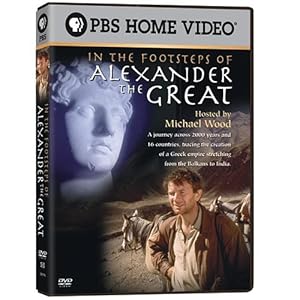 In 1997, the boyish English historian Michael Wood, dubbed the "thinking woman's crumpet" by the British media, made a TV documentary called In the Footsteps of Alexander the Great. (There's an accompanying book by the same name). I'm not sure about the crumpet part, but the four-part series is a fascinating recreation of Alexander's epic Eastward journey, from Macedonia to Persia, Egypt, Babylon, Afghanistan, India, and part-way home. Wood wades chest-deep through the sea to get around rocky headlands where Alexander's troops would have done the same, chats with locals as though Alexander passed through the day before yesterday, compares ancient and modern military maps, and encounters in country after country variations on the rumour that Alexander had horns (and killed all his barbers to keep the secret). Utterly entertaining and not hard to find (I borrowed it from the Vancouver Public Library).
In 1997, the boyish English historian Michael Wood, dubbed the "thinking woman's crumpet" by the British media, made a TV documentary called In the Footsteps of Alexander the Great. (There's an accompanying book by the same name). I'm not sure about the crumpet part, but the four-part series is a fascinating recreation of Alexander's epic Eastward journey, from Macedonia to Persia, Egypt, Babylon, Afghanistan, India, and part-way home. Wood wades chest-deep through the sea to get around rocky headlands where Alexander's troops would have done the same, chats with locals as though Alexander passed through the day before yesterday, compares ancient and modern military maps, and encounters in country after country variations on the rumour that Alexander had horns (and killed all his barbers to keep the secret). Utterly entertaining and not hard to find (I borrowed it from the Vancouver Public Library).
Better Book Titles: The Golden Mean
 The honour, the honour! Dan Wilbur gives The Golden Mean the "better book title" treatment. You can visit the whole site by clicking here.
The honour, the honour! Dan Wilbur gives The Golden Mean the "better book title" treatment. You can visit the whole site by clicking here.
Saturday, September 4, 2010
Aristotle's Lantern
Aristotle must have been an avid marine biologist; his History of Animals includes numerous descriptions of fish and shellfish, including the urchin, whose digestive system has become known as Aristotle's Lantern after this passage:
"…the urchin has what we mainly call its head and mouth down below,and a place for the issue of the residuum up above. The urchin has, also, five hollow teeth inside, and in the middle of these teeth a fleshy substance serving the office of a tongue. Next to this comes the esophagus, and then the stomach, divided into five parts, and filled with excretion, all the five parts uniting at the anal vent, where the shell is perforated for an outlet... In reality the mouth-apparatus of the urchin is continuous from one end to the other, but to outward appearance it is not so, but looks like a horn lantern with the panes of horn left out." (Aristotle, History of Animals, Tr. D'Arcy Thompson, courtesy of Wikipedia).
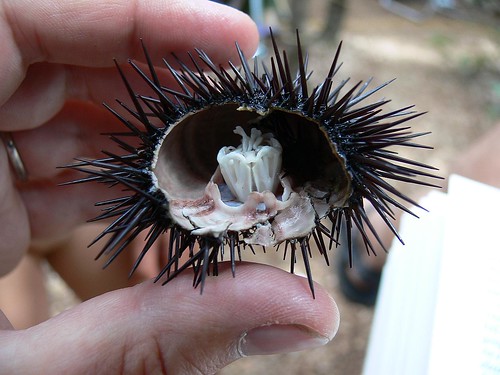
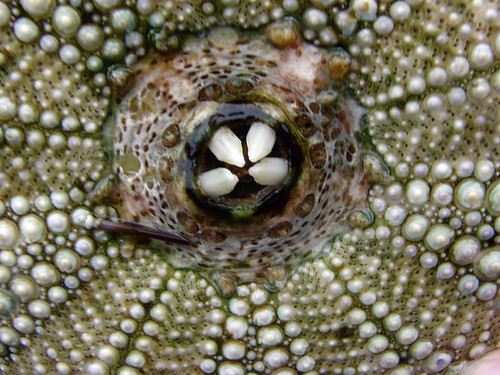
"…the urchin has what we mainly call its head and mouth down below,and a place for the issue of the residuum up above. The urchin has, also, five hollow teeth inside, and in the middle of these teeth a fleshy substance serving the office of a tongue. Next to this comes the esophagus, and then the stomach, divided into five parts, and filled with excretion, all the five parts uniting at the anal vent, where the shell is perforated for an outlet... In reality the mouth-apparatus of the urchin is continuous from one end to the other, but to outward appearance it is not so, but looks like a horn lantern with the panes of horn left out." (Aristotle, History of Animals, Tr. D'Arcy Thompson, courtesy of Wikipedia).


Friday, September 3, 2010
Guardian Review
"The 4th century BC and the youth of Alexander the Great are marvellously reimagined in Lyon's justifiably garlanded novel. Aristotle returns from Athens at the request of Philip II to Macedonia, where he becomes tutor to the king's son Alexander, presented here as a hotheaded, inquisitive young prince already showing signs of the limitless ambition and tactical genius that would make him one of the greatest empire-builders in history. The daily intrigues of the court, the visceral aspects of battle, philosophical discussion and Aristotle's household are all evoked in measured, burnished prose, which combines thrilling immediacy with a stately timelessness. Aristotle's black moods and Alexander's probable latent psychosis in particular are fascinatingly drawn."
To read Catherine Taylor's full article for The Guardian, please click here.
To read Catherine Taylor's full article for The Guardian, please click here.
Yorkshire Evening Post Review
 "With her sensuous prose, rich imagery and meticulous attention to detail, Lyon has brushed the cobwebs of ages from two of history's most charismatic characters and brought them gloriously to life."
"With her sensuous prose, rich imagery and meticulous attention to detail, Lyon has brushed the cobwebs of ages from two of history's most charismatic characters and brought them gloriously to life."To read Robert Colbeck's full review of The Golden Mean for the Yorkshire Evening Post, please click here.
Thursday, September 2, 2010
More US Reviews
"Lyon hits all the notes, from elegant to funky, to immerse us in places so foreign and so distant in time".
To read John McFarland's full review for Shelf Awareness, please click here.
"An intelligent and carefully written novel, I would recommend The Golden Mean and look forward to future works by Annabel Lyon."
To read Mary Simmon's full review for BookPleasures.com, please click here.
To read John McFarland's full review for Shelf Awareness, please click here.
"An intelligent and carefully written novel, I would recommend The Golden Mean and look forward to future works by Annabel Lyon."
To read Mary Simmon's full review for BookPleasures.com, please click here.
Amazon.com Best of the Month
 I'm so pleased that The Golden Mean has made Amazon.com's Best of the Month list for September 2010. For more information, please click here.
I'm so pleased that The Golden Mean has made Amazon.com's Best of the Month list for September 2010. For more information, please click here.
Wednesday, September 1, 2010
Kirkus Starred Review
"As authoritative and compelling as Mary Renault’s renowned novels set in the ancient world. One hopes we may learn more about Lyon’s immeasurably brilliant, unflappably human Aristotle."
 If you are an online subscriber to Kirkus Reviews, you can read the full review of The Golden Mean by clicking here.
If you are an online subscriber to Kirkus Reviews, you can read the full review of The Golden Mean by clicking here.
 If you are an online subscriber to Kirkus Reviews, you can read the full review of The Golden Mean by clicking here.
If you are an online subscriber to Kirkus Reviews, you can read the full review of The Golden Mean by clicking here.
Tuesday, August 31, 2010
Praise from Hilary Mantel
"This quietly ambitious and beautifully achieved novel is one of the most convincing historical novels I have ever read. Lyon makes her reader avid for every detail of this strange world, whether domestic or medical or military, and she has steeped herself in the thinking of the time. She makes her characters entirely solid and real, while respecting their otherness, the distance between us. That is what characterised Mary Renault’s novels, and I think that she would have deeply admired this book. [Lyon’s] judgment is sound and true, and the reader trusts her voice from the first paragraph."
--Hilary Mantel, author of the Man Booker Prize-winning Wolf Hall
--Hilary Mantel, author of the Man Booker Prize-winning Wolf Hall
Sunday, August 29, 2010
Irani Irony

 The Iranian Book News Agency has picked up the BC Ferries / The Golden Mean bare bum story. To read the full article, please click here. According to the website, "The agency's main goal is dissemination of national and international news on books and at the same time covering all other issues such as publication, edition, distribution, etc. of books." They cover more than just the issues, judging by the doctored author photo that appears alongside the article (pictured here).
The Iranian Book News Agency has picked up the BC Ferries / The Golden Mean bare bum story. To read the full article, please click here. According to the website, "The agency's main goal is dissemination of national and international news on books and at the same time covering all other issues such as publication, edition, distribution, etc. of books." They cover more than just the issues, judging by the doctored author photo that appears alongside the article (pictured here).
The Golden Mean in South Africa
The Golden Mean / BC Ferries debate reaches South Africa, courtesy of Agence-France Presse. To read the full article in the Johannesburg Star, please click here.


Passages: BC Ferries Gift Shop
"If you're looking for something specific that isn't shown here, just get in touch with us and we'll do our best to track it down for you."
From the BC Ferries gift shop website.

From the BC Ferries gift shop website.

Saturday, August 28, 2010
Xtra Gets It
 "We need to get rid of this shame around the human body. Children are not going to be scarred by seeing a human body." NDP Arts Critic Spencer Chandra Herbert
"We need to get rid of this shame around the human body. Children are not going to be scarred by seeing a human body." NDP Arts Critic Spencer Chandra Herbert"Censorship is always silly. It's embarrassing for BC." Jim Deva, co-owner of Little Sister's Book & Art Emporium
To read Jeremy Hainsworth's article for Xtra on the BC Ferries/bare bum furore, please click here.
Wednesday, August 25, 2010
Viral Bums
 Sorry, couldn't resist that title! It seems that London's The Guardian newspaper has picked up the "no bums on BC Ferries" story, under the headline "Alexander the Great Novel Gets Bum Rap in Canada". To read Alison Flood's article for The Guardian, please click here.
Sorry, couldn't resist that title! It seems that London's The Guardian newspaper has picked up the "no bums on BC Ferries" story, under the headline "Alexander the Great Novel Gets Bum Rap in Canada". To read Alison Flood's article for The Guardian, please click here.
Monday, August 23, 2010
"Banned Book Bummer": The New Yorker Blog
 "Censorship, to our way of thinking, is generally bad news. Is there ever a good reason to ban a book? Maybe not, but the cause for a recent Canadian ban on Annabel Lyon’s “The Golden Mean” strikes us as particularly silly. BC Ferries, a maritime transportation service in British Columbia, has removed Lyon’s novel from its bookshops—not because the author penned a controversial scene or racy bit of dialogue, but because the paperback’s cover art features a naked man’s rear-end!"
"Censorship, to our way of thinking, is generally bad news. Is there ever a good reason to ban a book? Maybe not, but the cause for a recent Canadian ban on Annabel Lyon’s “The Golden Mean” strikes us as particularly silly. BC Ferries, a maritime transportation service in British Columbia, has removed Lyon’s novel from its bookshops—not because the author penned a controversial scene or racy bit of dialogue, but because the paperback’s cover art features a naked man’s rear-end!"To read Eileen Reynolds's full blog entry for The New Yorker, please click here.
Thanks to Damian Inwood of The Province for first publicizing the story; to read his article, please click here.
Wednesday, August 18, 2010
Herodotus and PTSD
 In The Golden Mean, I imagine Alexander suffering post-traumatic stress disorder as a result of being trained as a child soldier. Such mental trauma is as old as soldiering; witness this passage from Herodotus describing the aftermath of the Battle of Marathon:
In The Golden Mean, I imagine Alexander suffering post-traumatic stress disorder as a result of being trained as a child soldier. Such mental trauma is as old as soldiering; witness this passage from Herodotus describing the aftermath of the Battle of Marathon:"It happened that an amazing event took place there, when Epizelus son of Cuphagoras, an Athenian who was fighting in the battle and proving himself to be a noble and courageous warrior, was stricken with blindness, though he had not been struck or hit on any part of his body. But from this time on and for the rest of his life, he continued to be blind. I have heard that the story he told about it went something like this: he thought he saw a huge hoplite [heavily-armed foot soldier] whose beard overshadowed his entire shield and who was standing opposite him; but this phantom passed by Epizelus and killed the man standing next to him."
from The Landmark Herodotus: The Histories, Robert B. Strassler, ed., translated by Andrea L. Purvis
Tuesday, August 17, 2010
Financial Times Review
"The style as a whole posesses an often eerie earthiness... This is a novel that stands firmly on its own feet." To read Philip Womack's full review for the Financial Times, please click here.
Sunday, August 15, 2010
Friday, August 13, 2010
Edinburgh International Book Festival
 I'm so pleased to be taking part in three events at the Edinburgh International Book Festival: on Tuesday, August 17 at 5:30PM I'll be reading from the work of Afghan writer Nadia Anjuman as part of the "Amnesty International Imprisoned Writers Series: Violence Against Women"; on Thursday, August 19 at 10:00AM I'll be reading in the "Ten at Ten" event; and later that day, at 6:45PM, I'll be doing a joint event with historical novelist SJ Parris. I'm also immensely honoured to be nominated for the inaugural Edinburgh International Book Festival Readers' First Book Award. For more information, please click here.
I'm so pleased to be taking part in three events at the Edinburgh International Book Festival: on Tuesday, August 17 at 5:30PM I'll be reading from the work of Afghan writer Nadia Anjuman as part of the "Amnesty International Imprisoned Writers Series: Violence Against Women"; on Thursday, August 19 at 10:00AM I'll be reading in the "Ten at Ten" event; and later that day, at 6:45PM, I'll be doing a joint event with historical novelist SJ Parris. I'm also immensely honoured to be nominated for the inaugural Edinburgh International Book Festival Readers' First Book Award. For more information, please click here.
Tyee Interview
 "Though the novel is based firmly in history, Lyon makes departures that bring Aristotle's life into focus for modern readers. Her thoughtful, flowing prose links facts and carefully constructed fiction, and brings to life the corporeal, intellectual, and intangible aspects of life in the ancient world. The result is a novel that begs to be discussed."
"Though the novel is based firmly in history, Lyon makes departures that bring Aristotle's life into focus for modern readers. Her thoughtful, flowing prose links facts and carefully constructed fiction, and brings to life the corporeal, intellectual, and intangible aspects of life in the ancient world. The result is a novel that begs to be discussed."To read Shannon Smart's full article for The Tyee, please click here.
Thursday, August 12, 2010
Times Profile
 "On the day that I am to interview Lyon, an e-mail slips into my inbox from none other than the Booker prizewinner Hilary Mantel. It is full of praise for The Golden Mean, calling it a “quietly ambitious and beautifully achieved novel” that is “one of the most convincing historical novels I have ever read”."
"On the day that I am to interview Lyon, an e-mail slips into my inbox from none other than the Booker prizewinner Hilary Mantel. It is full of praise for The Golden Mean, calling it a “quietly ambitious and beautifully achieved novel” that is “one of the most convincing historical novels I have ever read”."To read Jake Wallis Simons' entire article for The Times, please click here.
Saturday, August 7, 2010
Hello Again, Sechelt!
 On Saturday, August 14 at 7:00PM I'll be speaking at the Sunshine Coast Festival for the Written Arts. For more information, please click here.
On Saturday, August 14 at 7:00PM I'll be speaking at the Sunshine Coast Festival for the Written Arts. For more information, please click here.
Thursday, August 5, 2010
Word of the Day
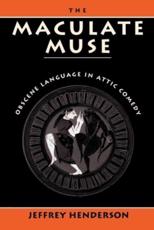 I'm often asked about my use of profanity in The Golden Mean, especially the word "fuck". Now (say sceptics, hands on their hips, smiling doubtfully), the ancients didn't really speak that way, did they? Did they? Surely my use of that term is anachronistic at best, terminally vulgar at worst?
I'm often asked about my use of profanity in The Golden Mean, especially the word "fuck". Now (say sceptics, hands on their hips, smiling doubtfully), the ancients didn't really speak that way, did they? Did they? Surely my use of that term is anachronistic at best, terminally vulgar at worst?"Bineo" responded the ancient Greek linguistics specialist whom I consulted about the ancient use of profanity, vulgarity, and basically every word your mother didn't raise you to use, young lady, thank you very much. That's the ancient Greek equivalent of "fuck", with all its modern connotations. For those who remain sceptical, I recommend Jeffrey Henderson's The Maculate Muse: Obscene Language in Attic Comedy. Thorough, serious, and scholarly, this book also features one of the most eye-popping academic indices you will ever enjoy. Entries include Crepitation, sound effects for; Exhibitionism in Iambic Poetry; Horsemanship as metaphor; Nautical metaphors; Perversion; Piercing; Satyr-drama; Scatology in Sicilian comedy; Scatophagy; Urination as theme; and my personal favourite: Obscenity, scholarly neglect of.
Subscribe to:
Comments (Atom)
